More about Process
-

The 3-Step Formula for Multiplication
by Jeff Meyer | March 27, 2017"And the things you have heard me say in the presence of many witnesses entrust to reliable people who will also be qualified to teach others. " 2 Timothy 2:2 What qualifies someone to teach others? Advanced biblical training? Theological degrees? Titles? Anyone can teach.

-

5 Dangers of Unaligned Small Groups
by Thom Rainer | March 9, 2017The first time I encountered this issue was in a church consultation nearly twenty years ago. I asked the pastor to tell me what was being taught in the church’s small groups.

-

What Gets in Our Way When It Comes to the Church’s Mission to Make Disciples?
by Will Mancini | March 6, 2017What gets in our way when it comes to the church’s mission to make disciples? Let’s look at the things we do at church and they way we spend our time as pastors: Preparing a sermon or teaching message in a given week without spending time in disciple-making relationships. Spending time meeting with staff and church leaders in a given week in lieu of spending time in personal disciple-making relationships.

-

4 Habits Behind a Successful Guest Experience
by Bob Adams | August 28, 2015The most important 2 feet can be found on the front lines of your church’s Guest Services or Hospitality teams: They belong to the team members who are the “first face” of your church – parking lot crews, greeters, ushers – anyone who is making the first impression with your Guests. They also represent the space and distance where the words you use and the actions you take make the most powerful impact with your Guest.

-

Smiling is Not Enough: The Top Ten Mistakes Your Volunteers Make Welcoming Guests at Church
by Will Mancini | August 3, 2015The team at Auxano enjoys playing the role of “secret worshipper” when we take a church through our visioning process called the Vision Pathway. We call it a Guest Perspective Evaluation.

-

God’s Vision Frame
by Rob Tims | May 8, 2015If you’re a friend of Auxano, you are likely well versed in the Church Unique Vision Frame. Its five components define every church’s DNA and create a platform for all vision casting.

-

Are Your Children Hearing the One Story, Not Just a Bunch of Stories?
by Ed Stetzer | April 27, 2015Children have a faith that is ready to go. Let’s not waste that opportunity by delivering a humanistic Gospel.

-

Why Your Church Should Think Twice Before Going Multi-Site
by Rich Birch | April 16, 2015The multi-site revolution is the biggest thing to happen to the broader church movement in my almost 20 years of ministry. I’ve personally been involved in the launch of 12 campuses—working on 2 more as we speak!—and I’ve coached a bunch of other leaders through the process.

-

It’s Easier to Talk About Missional Living Than It Is to Live It Out
by Ed Stetzer | April 8, 2015One of the things we’ve all heard a lot of talk about is what it means to be missional. It’s a relatively new word that has emerged into the conversation over the last few decades.

-

Follow These Three Signposts on the Path to Spiritual Growth
by Ed Stetzer | April 3, 2015What Are We Missing in Discipleship? Lately there’s been a lot of talk about spiritual formation and discipleship, and rightfully so. I think we can all agree there’s a discipleship deficit in many churches.

-

You Are What You Do: How Process Drives Culture
by Dave Bair | March 31, 2015In organizations I have coached over the years, there is a common belief that business processes and work culture are separate, distinct things. While they are indeed different sides of a coin, I believe they are inextricably related.

-

4 Areas That Drive Effective Church Assimilation
by Steve Caton | March 26, 2015Every area of ministry in your church is enhanced when you focus on developing an effective assimilation process. Discipleship thrives because there’s a process in place to move people into a deeper relationship with Christ.

-

Be a Church That Wants to Go Deep with God
by Ed Stetzer | March 17, 2015Lately there’s been a lot of talk about spiritual formation and discipleship, and rightfully so. I think we can all agree there’s a discipleship deficit in evangelicalism.

-

2 Ways to Solve the Guest Experience Problem You Don’t Know You Have
by Thom Rainer | March 13, 2015In my blog I have referred many times to my days of church consultation, particularly those experiences where we sent one of our consultants to be a first-time guest in a church. He or she would return with a report of those experiences, and the report would eventually be consolidated with other information for the church.

-

Meet Dave Bair – Process Coach at Church Community Builder
by Steve Caton | March 2, 2015If you regularly read my Vision Room content, you know that I tend to lean towards process and leadership themes. For people that know me only as a part of the leadership at Church Community Builder, that may seem inconsistent.

-

Why Group Friendliness is More Important Than You Realize
by Bill Donahue | February 23, 2015I work with dozens of churches each year as I work with their leadership teams about small groups, spiritual growth and transformational leadership. Often I am contacted and asked some variation of this question: “Bill, can you help us build/grow our small group ministry?” Before I answer yes, no or maybe, I engage in a conversation, asking lots of questions and getting to know the current state of the church.

-

Humble Volunteers: The Secret Sauce in Your Ministry
by Steven Furtick | February 13, 2015One of our staff members at Elevation used to work at Chic-fil-A. He claims to know the secret about how they make the chicken taste so delicious.

-

Are Your Student Ministries a 4-Year Holding Tank with Pizza?
by Ed Stetzer | January 6, 2015Despite all the fear driven presentations you’ve heard, not every young person is walking out of the church the moment they finish high school and never coming back. Here’s what you need to know.

-

Ten Reasons for Growing Your Year-End Giving
by Todd McMichen | December 3, 2014As we enter the final month of the year, I’m frequently asked about year-end giving. Many churches will be feeling budget pressures with donations that have lagged behind expenses all year and need to catch up.

-

Growing Your Groups, Part 1: 5 Ways to Connect with Disconnected People
by Ed Stetzer | November 27, 2014One of the higher priorities for the church in recent years has become assimilation, and rightful so. The days are gone when people would find the nearest church and commit immediately—more people are secular and are not looking to jump in to a church and more Christians are cautious in their involvement.

-
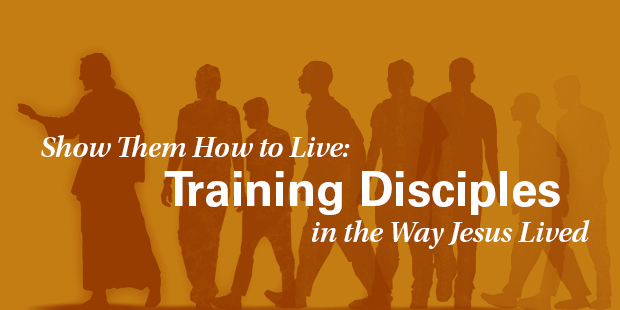
Show Them How to Live: Training Disciples in the Way Jesus Lived, Part 2
by Timmy Brister | November 1, 2014(continued from Part 1) > The Bottom Line for Living Now Here’s the bottom line: Jesus has called all who believe in Him to be His disciples. Our goal is to become like Him and represent Him in the world.

-
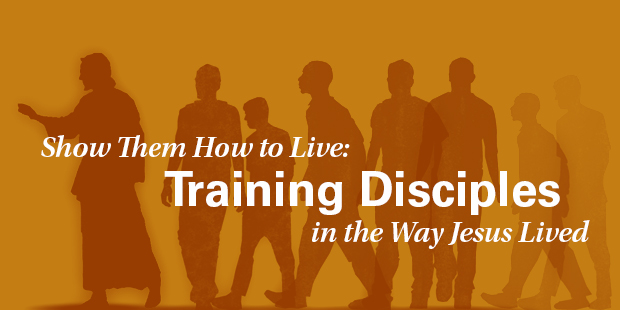
Show Them How to Live: Training Disciples in the Way Jesus Lived
by Timmy Brister | October 28, 2014I grew up in a churched culture. From the time I left the hospital until I graduated high school, I was put through every program, participated in every activity, and was faithful to every event our local church had to offer.

-

Team Alignment: 6 Actions Necessary to Create a Positive Ministry Team Experience
by Annette Franz | July 13, 2014Vision Curator's Note: This post was originally published on January 29, 2013, on Employee Happiness Tips Tricks & Tools, a site where you can find state-of-the-art real-life ideas for boosting employee happiness. With the author's permission, I've made only slight modifications to reflect the language of church ministry teams, focusing on Guest Experience teams.

-

When It Comes to Guest Experience, What You Manage Is What You Get
by Tim Brown | July 11, 2014How often have you experienced unfriendly or grumpy service on an airline, in a restaurant, or in another service environment? Quite a few times, I imagine. In the vast majority of cases, I would take a bet that this is not so much a result of poor hiring or training, but a reflection of a poor internal culture.

-

Three Bottom-Line “Musts” for Your Church’s Guest Services Ministry
by Mark Waltz | July 8, 2014I've been asked lately about some bottom-line "musts" to establish and/or take guest services excellence to the next level. This isn't an exhaustive list (that's why I wrote a few books on the topic), but these core essentials will provide a foundation to make your serve to guests excellent and personable.

-
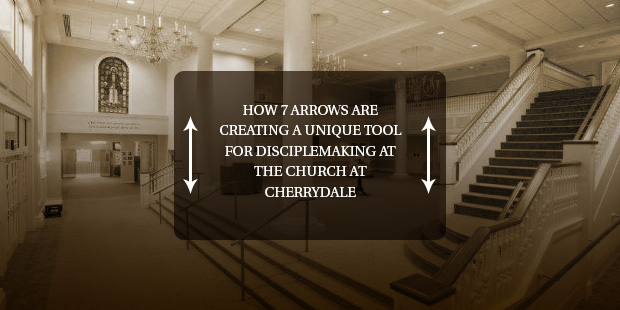
How 7 Arrows Are Creating a Unique Tool for Disciplemaking at The Church at Cherryvale
by Matthew Rogers | June 17, 2014There is often a vast disconnect between the awareness of the need for disciple-making and practical tools that actually aid in this work. Three factors are essential: Scripture, relationships, and time.

-

Vibrant Community: The Secret DNA of Every Church
by Steve Caton | May 10, 2014Brands like Apple, Zappos, and Southwest Airlines understand that the thing that makes an organization great is the vibrant and passionate community it creates. It doesn’t just happen.

-

The Story of the Table and Understanding Your Audience by Seth Godin
by VRcurator | April 21, 2014Brilliant simplicity from Seth Godin: The person who invented the banquet table, the round table for ten, wasn’t doing it to please those at the banquet or even the banquet organizer. He did it because this is the perfect size for the kitchen and the servers.

-

The 4-Point Email: Sharing Best Practices with Your Team
by Mark Waltz | February 9, 2014Excellent guest service - whether in a local church, community non-profit, retail business or service industry - is really the compilation of lived-out best practices. Those benchmark behaviors that may be simple and common sense, but they are set as standards of practice by everyone in the organization.

-

What’s Your Disciple Making Plan for 2014?
by Timmy Brister | February 7, 2014Making Disciples Is Hard Making disciples is the call of every believer in Jesus Christ. Yet, I dare say for most of us, it has been permitted to accept a version of Christianity both personally and corporately where disciple making is virtually non-existent.

-

Rick Warren on Preaching for Life Transformation
by Rick Warren | February 3, 2014If God’s objective for every believer is to transform us into total Christlikeness, then the objective of preaching is to motivate people to develop Christlike convictions (to think like Jesus), Christlike character (to feel like Jesus), and Christlike conduct (to act like Jesus). Every other objective of preaching is secondary.

-

Measuring the Process Determines True Movement
by Eric Geiger | September 12, 2013Preseason NFL games are boring to watch, even for serious fans. Seriously, Sportscenter on ESPN barely mentions preseason games.

-

NewSpring Evangelism Course Participant Guide
by Perry Noble | August 11, 2013At NewSpring Church, "found people find people. " Pastor Perry Noble and his team have prepared a tremendous resource on Evangelism for use in their groups - and now they have made available to everyone! Here is a brief outline of each session.

-
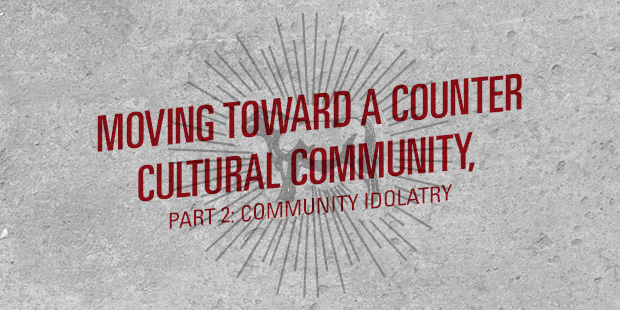
Moving Toward a Counter-Cultural Community, Part 2: Community Idolatry
by Timmy Brister | August 5, 2013In the first post, I talked about 11 different aspects of society used a filters or barriers to form or foster community. I argued, “In order for a gospel community to be counter-cultural, we first have to assess what we are encountering in the culture.

-

What Does a Real Movement Look Like?
by Ed Stetzer | August 1, 2013Actual movements are tricky things, but the word has never been more popular. People keep referring to themselves as "a movement for global change" or "a church planting movement.

-

4 Ways That Missional Feet are Made Beautiful
by Ed Stetzer | July 18, 2013I've written extensively about the missional nature of the church and the theological background that undergirds that nature. God is, by His nature, a sender.

-

Duplicatable Process
by Will Mancini | June 19, 2013For a leader, the maxim is true: it’s not about what you can do, but what you can duplicate. At some point your vision must transcend your skills and be deposited into the basic reproducible habits of the entire congregation.

-

Innovate Your Guest Experience by Focusing on Ministry Model and Brand
by Kerry Bodine | June 8, 2013Your Guests are your customers. At Forrester Research, Inc.

-

7 Ways to Keep Community at the Core of Your Church
by Bill Donahue | June 6, 2013I had the privilege of being with some great yet humble pastoral leaders last week at a forum in Atlanta. These 22 men and women are responsible for creating a climate where group life and effective teams can flourish in and through the life of the local church.

-

Five Multiplication Resources for Your Church
by Eric Geiger | June 4, 2013Each month, in conjunction with the Creature of the Word book that I wrote with Matt Chandler and Josh Patterson, we list questions and action items for church leadership teams to consider on the Facebook page. We recently listed some of our top resources on multiplication.

-
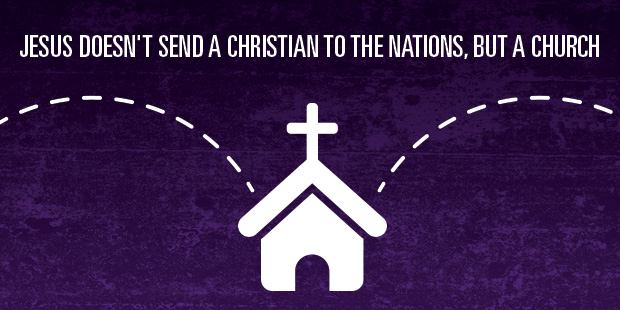
Jesus Doesn’t Send a Christian to the Nations, But a Church
by Trevin Wax | May 15, 2013The Great Commission was given to a community. Western readers have tended to read the Great Commission passages (especially Luke 24 and Matthew 28) in light of the autonomous individual.

-

Have You Considered a Ministry Connections Concierge at Your Church?
by Geoff Surratt | May 12, 2013How do you help people make meaningful connections when they attend your church? One of the most frustrating things in finding a church has been figuring how to connect with other attenders. My wife had a great idea the other day and I wanted to pass it on before it slips into the abyss forgetfulness that is my brain.

-

Understanding the Biblical Symmetry in Your Discipleship Process
by Timmy Brister | May 5, 2013I believe there is biblical symmetry in how we enter missionally and how we make disciples by joining them to invite us into this life on mission. That symmetry is best explained by looking at a language device known as a chiasm.

-

A Disciple is Someone Who Knows What Time It Is
by Trevin Wax | May 1, 2013You can’t obey Jesus’ command to go and make disciples if you don’t know what Jesus means by “disciple. ” And you won’t know what Jesus means by disciple unless you watch the the way He portrayed discipleship in His teaching, particularly in His parables.

-

Measuring Ministry Progress in Your Church, Part 4: Gospel Articulation
by Steve Kryger | April 27, 2013Last week when I wheeled my son in his pram, down our steep driveway, I was super careful. I wasn’t taking any chances – I had precious cargo and I would do everything in my power to concentrate and carefully bring him down the hill.

-

Measuring Ministry Progress in Your Church, Part 3: Small Groups
by Steve Kryger | April 20, 20135 useful measurements for Bible study group involvement. In a prior post we explored the first measure of ministry progress: attendance.

-

Measuring Ministry Progress in Your Church, Part 2: Attendance
by Steve Kryger | April 13, 2013Numbers matter to God, because people matter to God. In a previous post I introduced the importance of measuring progress in ministry.

-

Measuring Ministry Progress in Your Church, Part 1: Introduction
by Steve Kryger | April 5, 2013Several years ago my wife and I visited Canada, to see my sister and brother-in-law. While in Vancouver, we walked up the infamous Grouse Mountain.

-

Seven Disciplemaking Imperatives in Your Church
by Barry Sneed | April 1, 2013Churches across the globe have begun to realize the importance of the biblical mandate (Matt. 28:19–20) for disciple-making, and are imagining the transformation of lives and the culture where their church exists.

-

The Leader’s Dilemma: Are You an Answer Guy or a Discovery Guide?
by Jeff Meyer | March 30, 2013Recently I was asked a question in an email about an apparent discrepancy in the Bible. I answered it.

-

The Power of the Preposition: Are You a Church OF or a Church WITH Disciplemaking?
by Barry Sneed | March 25, 2013Is your church a church OF disciple-making or a church WITH disciple-making? The question is not meant to offend or criticize, but rather to clarify. The question has been generated from numerous conversations with pastors and discipleship leaders on a daily and weekly basis.

-

Is Discipleship the Totality of All Your Church Does in Ministry?
by Eric Geiger | March 23, 2013Eric Geiger continues his 2013 Discipleship Interview Series with Trevin Wax below. Trevin serves as the managing editor of The Gospel Project and is a prolific blogger.

-

When Does Knowledge Equal Spiritual Growth?
by Aaron Armstrong | March 16, 2013Evangelicals have a love-hate relationship with knowledge, it seems. Many churches seem to be so embarrassingly anti-intellectual that it seems if you enjoy books, you may finding yourself looking for a new church.

-

Spiritual Malnourishment: When the Sheep Won’t Feed Themselves
by Steven Furtick | March 14, 2013One of the greatest critiques of the American Church today is that it’s malnourished. Some would even say it’s our most pressing problem.

-

Leaders Must Understand the Reality of Spiritual Transformation and Design for Growth
by Eric Geiger | March 11, 2013Church leaders must craft opportunities where people will encounter the grace of God. Simple church leaders are designers, not programmers.

-

7 Things Pastors Should Teach Those in the Marketplace
by Lukas Naugle | March 5, 2013The marketplace, the everyday world of trade and economic activity, is where most people spend the majority of their days. In modern history, the marketplace has played an unparalleled role in shaping our world.

-

7 Things Pastors Should Teach Those in the Marketplace
by Lukas Naugle | March 5, 20131. Teach them how Scripture informs their work.

-

Epic Quotes on Discipleship from Prof Howard Hendricks
by Will Mancini | March 3, 2013Howard G. Hendricks, known affectionately as “Prof” to more than 10,000 graduates of Dallas Theological Seminary, leaves behind an incalculable legacy which he would call “the work of Christ in me.

-

Outward vs. Inward Focused Churches
by Tony Morgan | February 18, 2013Over the last several years, I’ve worked with church leaders from close to 200 different churches in consulting and coaching relationships. These churches are all different shapes and sizes.

-

Consider Preschool Before the Pulpit
by Aaron Armstrong | February 16, 2013Practice makes perfect, so the saying goes—and often one of the hardest things for a novice preacher to do is find opportunities to practice their skills. One place they may want to consider: Children’s ministry.

-

Closing the Back Door of Your Church: Moving from Entitlement to Servanthood
by Thom Rainer | February 9, 2013Numbers of gifted persons and organizations have studied the phenomenon of the church “back door,” the metaphorical way we describe people leaving the church. And there will always be the anticipated themes of relocation or personal crises.

-

Are Groups Really Important in Your Church?
by Eric Geiger | February 5, 2013I believe groups (classes, Bible fellowships, etc) should be important to churches because God has supernaturally ordained community to sanctify His people. God, who is an eternal community of three Persons, created community for our benefit and His glory.

-

How Do We Help People Engage Deeper With Mission?
by Rob Wegner and Jack Magruder | February 3, 2013As church leaders, we know people won’t become disciples by sitting through services or just studying the Bible in classrooms. Jesus showed us that mission is the context for making disciples who can make disciples.

-

Gospel Hospitality
by Jeff Vanderstelt | February 3, 2013Hospitality is a forgotten art. It also has a lost biblical history.

-

Jesus’ Full Definition of “Disciple” – What It Means for Your Family and Your Church
by Hugh Halter | February 2, 2013Theologically, we know that the Church is supposed to be on mission for God. The church is called to leave what’s comfortable and propel itself out into the darkness as light, living the counter-culture life of the Kingdom of God.

-

What is Missional Community?
by Jeff Vanderstelt | February 1, 2013A missional community is a family of missionary servants who make disciples who make disciples. Family First of all, a missional community is a group of believers who live and experience life together like a family.

-

Creating Memorable Guest Experiences is More Important Than You Know
by Andrew McFarland | January 30, 2013Customer service consultants frequently suggest mapping the journey and defining the touchpoints of customer-company interactions. But perhaps this map and these touchpoints miss the most important part of the journey – memory.

-

5 Necessary Elements for an Evangelism Ethos in Your Church
by JD Greear | January 28, 2013I have read a lot of books on evangelism, and my two favorite are Bill Hybels’ Just Walk Across the Room and Mark Dever’s The Gospel and Personal Evangelism. Yes, I see the irony in that.

-

First Impressions: 10 Ways to Make Your Guests Feel Welcome
by Devin Maddox | January 23, 2013People never get a second-chance at a first impression. Neither do churches.

-

Transformational Churches: New Scorecard Offers Better Measure of Spiritual Maturity
by Polly House | January 22, 2013While no church is likely to ever say, "We've arrived!" when talking about their spiritual journey, there are churches happy to say, "We're moving in the right direction!" But how do you know where your church is spiritually if you have no means of measuring the issues that bring transformation to lives and communities? Fortunately, quality church assessment tools can help leaders identify strengths and weaknesses in your church and where your church is following Christ and living on mission. Why use an assessment tool? Assessment tools give churches a practical view of where they are and can inform next steps.

-

Aligning New Ministries Within Established Churches
by Thom Rainer | January 21, 2013If you have ever designed a room or redecorated a house, you know that it is much easier to work with new furniture. You buy furniture with the room in mind.

-

Make a Relationship Investment Plan This Year
by Timmy Brister | January 20, 2013Yesterday in my disciple-making class, we focused on developing a relationships investment plan for the new year. We plan for a lot of things.

-

How to Disciple Students at Your Church
by John Pond | January 17, 2013Every year my wife and I sit at high school graduations and watch our students walk across the stage as they transition into another phase of life. Every year I wonder, Will this student be swept away by the culture of the world in college, or will he/she change the culture around them as they live out the gospel? That's the job God has called us to.

-

The Constants of Church Community
by Steve Caton | January 16, 2013“Community” is one of our highest values at Church Community Builder. So much so, we made it part of our name.

-

A Tool to Measure Discipleship in Your Church
by Geoff Surratt | January 15, 2013How do we measure discipleship? It is relatively easy to measure church attendance, giving, or small group participation, but how do we measure church members becoming more like Christ? The Willow Creek Reveal Study pointed out that church activity doesn’t necessarily lead to fully devoted follower of Christ, but are there activities we can measure to help our congregation grow? I think there are six vital areas that point to a growing disciple: Serving in a local church. Church attendance without service does not grow me as a disciple.

-

New Research: Maturing Believers Exercise Faith, Trust
by Ed Stetzer | January 11, 2013LifeWay Research has released a new research brief on maturing believers. Here are the details: Believers who are progressing in spiritual maturity are more likely to exercise their faith by trusting God even in difficult circumstances, according to a survey by LifeWay Research.

-

Becoming a Church of Disciples Who Make Disciples
by Steve Caton | January 10, 2013One of the things I love doing on my blog is highlighting next-level resources that could help churches experience exponential growth or success in reaching their communities. Today, I wanted to take time to highlight the latest eBook from Alex Absalom, Disciples Who Make Disciples: Turning Your Church Into a Multiplying Movement, which he co-authored with Greg Nettle.

-
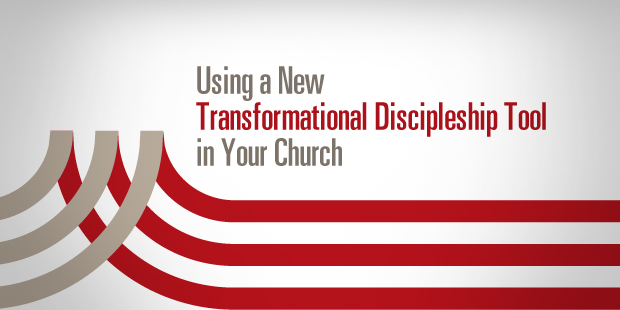
Using a New Transformational Discipleship Tool in Your Church
by Mark Howell | January 4, 2013Have you found yourself wondering if your church is making authentic disciples? Or ever will? Have you recognized that a lot of what passes for discipleship is really about information and behavior modification? If you’re ready for a new approach, you might want to take a look at the Transformational Discipleship DVD. I recently reviewed the challenging new book by the same name, written by Eric Geiger, Michael Kelley, and Philip Nation.

-

Introducing Transformational Discipleship
by Mark Howell | January 3, 2013If you’re looking for discipleship resources that will give direction to your approach, Transformational Discipleship: How People Really Grow by Eric Geiger, Michael Kelley and Philip Nation ought to be on your reading list. A research driven project, the book is based on the discoveries of an extensive research project launched by Lifeway in 2010 “to survey believers about their spiritual lives and level of maturity.

-

Diagnosing Your Discipleship Strategy
by Mark Howell | January 2, 2013Ever slow down long enough to look at whether your discipleship strategy is actually working? I know…who has time? Here’s the thing, we better make time! As I see it, you don’t have to read between the lines to see the link between leadership and accountability for results (See Matthew 25 or Luke 19 if you doubt me). That said, how can we determine whether our discipleship strategy is working? Here are a few ideas: Assessments like Willow’s Reveal can play an important role.

-

4 Keys to Changing Your Church Culture in 2013
by Steve Caton | January 1, 2013Whether it’s a business, a nonprofit organization, or a church, I am sure you have walked into a building and noticed either a level of excitement from those inside or a sense of doom! The energy which emanates from culture cannot be faked. It’s similar to the intent which stems from a persons heart.

-

5 Characteristics of Transformative Small Groups
by Ed Stetzer | December 30, 2012As culture drifts more and more toward individualism, transformational churches are taking on the responsibility of moving people into authentic relationships with each other, many through the instigation and encouragement of small groups. Though a hermeneutically responsible scriptural case cannot be made specifically for the institute of small groups, the Bible does offer examples of the need for and benefits of small units of community.

-

3 Keys to Making Disciples
by Barry Sneed | December 29, 2012What does a church look like when it succeeds? A church is successful when everyone in the church is in the game, maturing into disciples who can reproduce other disciples. Matthew 4:19 gives us a clear, uncomplicated image of what a disciple looks like, and helps a church know if it is obeying the command to make disciples.

-

Rethinking Church Planting
by Trevin Wax | December 27, 2012Jimmy Scroggins is a pastor friend of mine. He currently serves at First Baptist Church in West Palm Beach, Florida.

-

10 Metrics to Evaluate Your Church Before the End of 2012
by Steve Caton | December 22, 2012Over the past year, our team at Church Community Builder has had conversation with hundreds of pastors about what their churches track and measure. Because so many churches evaluate their ministries at year end, I thought it would be helpful to highlight the metrics we saw most frequently in the churches we serve who are growing and healthy.

-

Three New Trends in an Outward-Focused Church
by Thom Rainer | December 22, 2012In a previous post, I recalled the decline of traditional outreach ministries in many churches. I further noted that most churches no longer try to connect with people through “cold call” visits in their homes.

-

Using a Strategy Canvas in Your Small Groups
by Eric Swanson | December 21, 2012A couple of weeks ago we had the last session of our Externally Focused Small Groups (EFSGs) InnovationLab. Here are a few ideas behind the power of EFSGs: 1.

-

What is Transformational Church?
by Ed Stetzer | December 18, 2012People sometimes ask me about Transformational Church (TC), particularly after I mention it on Twitter as I did last week. I was talking about our TC Brasil project, as we are doing the TC research there.

-

The Quest for Community
by Leonard Sweet | December 12, 2012To be sure, experiences can become idolatrous as well as addictive. Postmoderns collect experiences like moderns collect stuff.

-

The Quest for Community
by Leonard Sweet | December 12, 2012I am an eBay addict. I may need help.

-

The Quest for Community
by Leonard Sweet | December 12, 2012Someday I will hold up my Bible before a congregation, shake it, and yell at the top of my lungs, "This is not a book about propositions and programs and principles. This is a book about relationships.

-

New Discipleship Research: Selflessness Leads to Spiritual Maturity
by Ed Stetzer | December 2, 2012Throughout the year, we have been releasing new research in support of Transformational Discipleship. This latest research is on "Serving God and Others"-- one of eight attributes of discipleship that consistently show up in the lives of believers who are progressing in spiritual maturity.

-

4 Questions to Consider Asking Yourself About Your Next Guest
by Seth Godin | December 2, 20121. Who is your next Guest? (Conceptually, not specifically.

-

Death Before Multiplication
by Will Mancini | November 28, 2012Seeds come from living plants. But before they bring more life, they must die.

-

People First, Data Second
by Steve Caton | November 15, 2012When I’m talking with church leaders about technology, the conversation often begins with questions about the kind of data we can track and report on. I know that it frustrates some of those leaders that I always flip the conversation to focus on people.

-

Why Plant Churches in the South?
by Ed Stetzer | November 15, 2012As someone who speaks and writes quite often about church planting, there are a few specific questions I'm asked more frequently. One that always seems to arise is "Why plant churches in the South?" It's a good question.

-

You Are Only as Strong as Your Foundation
by Eric Geiger | November 15, 2012Your ability to stand strong is based completely on the strength of what you are standing upon. My daughters make me nervous when they climb on top of something that is not sturdy, something that will give out and cause them to fall.

-

Church is All About the Numbers
by Steve Caton | November 9, 2012Perhaps you caught this subversive post by Steven Furtick about why Elevation Church is “all about the numbers. ” I resonated with Steven’s reminder that while many churches pit growth and discipleship against one another, a healthy church celebrates numerical growth.

-

Missing People – Do You Know Who They Are?
by Steve Caton | November 9, 2012The larger the church the more likely you are to have missing people. These are individuals and families who were active in various areas of your ministry who have — in a sense — disappeared.

-

How do You Measure Engagement?
by Steve Caton | November 9, 2012Measuring engagement is pretty easy for social media teams. How many people clicked “like?” How many people commented on your post? How many people “shared” it? But when it comes to ministry, it’s not quite that simple.

-
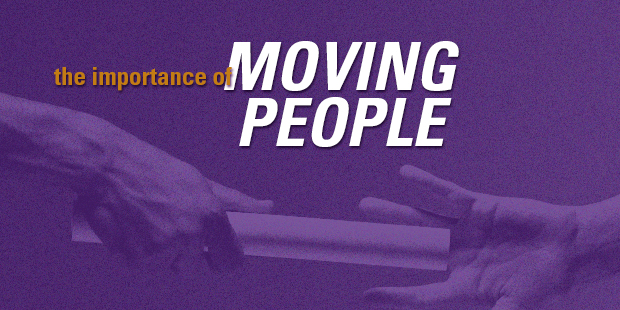
The Importance of Moving People
by Steven Furtick | November 9, 2012Great preachers and leaders know how to move people. As soon as I say that I know that the first thing that comes to many people’s minds is emotional manipulation.

-

Obedience is Not an Easy Decision for Believers
by Ed Stetzer | November 9, 2012Throughout 2012, we have been releasing groundbreaking new research from LifeWay Research's Transformational Discipleship study. In the study, we were able to identify eight attributes which consistently show up in the lives of believers who are progressing in spiritual maturity.

-

4 Keys for Church Hospitality
by Eric Geiger | November 9, 2012As my family visited churches upon moving to Nashville, we were blown away by the differences in hospitality to first time guests. In some churches we knew exactly where to park, were graciously welcomed, escorted to the children’s area to drop off our kids, and introduced to several helpful people.

-

Spiritual Disciplines
by Ed Stetzer | October 29, 2012"The spiritual disciplines" sounds like a phrase for another era of history. Whenever a book is written or a sermon is preached on the subject, people wonder if it is a subject only for ancient saints or a group of monks cloistered away in a mountain retreat.

-

New Research: Less Than 20% of Churchgoers Read the Bible Daily
by Ed Stetzer | October 13, 2012Statistically, you can see a recurring pattern: Bible engagement is directly related to spiritual growth. While it may be possible to become a "better person" by attending church, it is not true spiritual growth.

-

Leveraging Technology to Make Disciples
by Church Community Builder | October 12, 2012While the landscape of our culture is changing rapidly, the core mission of the church has not: go and make disciples. So how can we use the technology available to do that? I believe there are three keys for our churches to effectively utilize technology and give us the opportunity for digital discipleship in a world that is more connected and relationally-driven than ever before.

-

Multiplying Relationships: How Every Church Can Multiply
by Lane Corley | October 2, 2012Reaching North America for Christ is too big a task for one church to handle. New Church Multiplication is one of the best ways for us to work the North American fields to the edges.

-

8 Measures of Personal Discipleship
by Ed Stetzer | September 26, 2012In 2008, LifeWay Research commissioned a survey of more than 7,000 churches to discover the principles involved with healthy congregations. That research made up the framework for Transformational Church, a book I coauthored with Thom Rainer.

-

10 Questions to Diagnose the Evangelistic Health of Your Church
by Thom Rainer | September 26, 2012Any good physician will make certain your physical exam includes at least three components. First, the doctor will want you to have thorough lab work.

-

Can Mega Be Missional?, Part 1
by Ed Stetzer | September 26, 2012Today, I begin a new blog series to continue an ongoing dialogue. And make no mistake this dialogue is important.

-

Four Ways to Create an Evangelistic Culture in Your Church
by Thom Rainer | September 26, 2012I recently wrote an article that offered ten questions to help you diagnose the evangelistic health of your church. A couple of the readers asked insightful questions related to the culture of a church.

-

Can Mega Be Missional, Part 3
by Ed Stetzer | September 26, 2012Yes, there are problems to the megachurch (and problems to the small, medium, etc. ).

-

Design Your Ministry for Results
by Mark Howell | September 17, 2012Small group ministry struggling to meet the objectives you’ve set? Ending the ministry year and falling short of the goals that have been set for you? Although there are a number of possible explanations, the most likely reason is that your ministry isn’t actually designed to accomplish the goals and objectives you’d like to reach. If you want that to change, you need to design your ministry for results.

-

Evangelistic Churches and the MPI
by Thom Rainer | September 17, 2012What if you could look at the top five percent most evangelistic churches in America and find the common factors in their ministries? One of my twenty-year quests has been to take on that very challenge. My research, both anecdotal and scientific, has pointed me to several commonalities, but this latest discovery really excited me.

-

Apostolic Road Map
by Alan Hirsch | August 31, 2012Why I do the things I do. Many people ask me whether there is some reason and logic of my various writings or whether they are random reflections on various subjects related to the missional church.

-

Are You Missional?
by Trevin Wax | August 31, 2012In the book Live Sent: You Are a Letter, Jason Dukes lays out 10 questions to help Christians discern whether or not they are operating with a missional mindset. I’ve adapted and explained them below.












